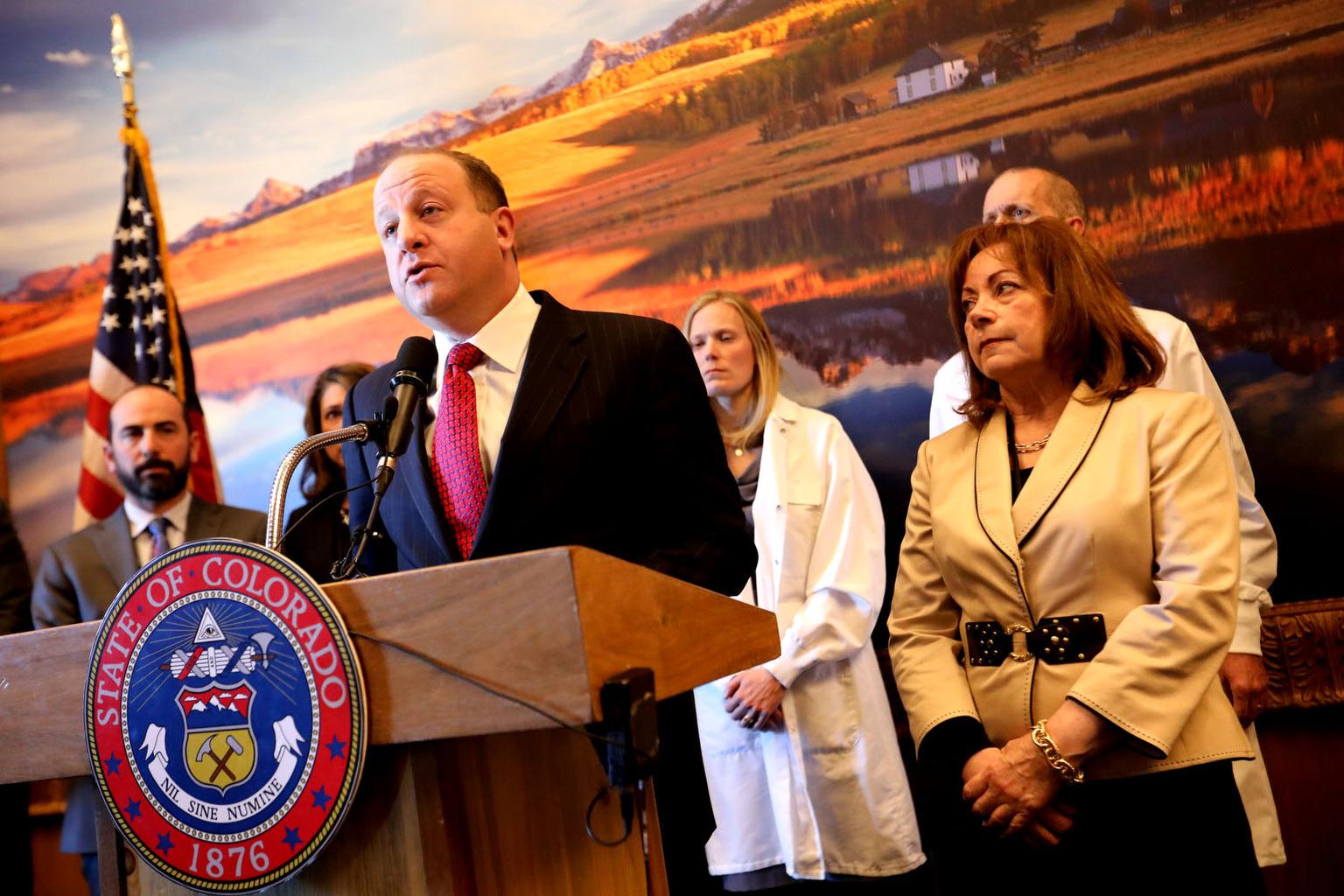
A day after Gov. Jared Polis declared a state of emergency over the coronavirus, some state lawmakers are frustrated that they still haven’t seen anything in writing.
Polis made his announcement verbally and an attorney for the governor said a short lag time from a verbal announcement to a formal document is normal. But some feel the lack of concrete details has hampered lawmakers’ efforts to develop contingency plans for their work at the state capitol.
“I'm very disturbed,” said Republican Sen. Bob Gardner of Colorado Springs. He wondered how lawmakers are supposed to act on something that hasn’t been finalized.
Gardner also questions some of the state actions Polis announced on Tuesday, including requiring certain industries give their employees paid time off if they need to be tested for the coronavirus. “I'm not sure what the governor's authority is for that. It may very well exist, under the state labor laws, but, who is exactly covered by that? What is the duration of that? There are a lot of unanswered questions.”
On Tuesday evening, the legislature’s Executive Committee spent a good portion of its meeting trying to figure out whether the emergency declaration was even official, and how much they can prepare without having anything in writing. One Republican leader called the situation odd.
“I mean a public announcement, a press conference -- if there is no written documents saying that there's an executive order that's declaring a state of emergency, that's my concern,” said Republican House Minority Leader Patrick Neville.
As the virus spreads, lawmakers could have to decide whether to close the legislature temporarily or adjourn entirely. Like a lot of workplaces, lawmakers are trying to figure out how to balance the risk with the need to get work done. But that's not easy in a building that attracts a quarter of a million visitors each year and where the mission includes being open to the public and conducting public hearings.
Democratic Speaker of the House KC Becker said given the fluid circumstances, it’s understandable that the governor issued a verbal emergency order. “At some point we look forward to seeing it in writing so we know exactly when Joint Rule 44 is in effect.”
Joint rule 44 governs how the legislature does its business during a declared disaster emergency. It states “the goal of the executive committee shall be to reprioritize the remaining work of the regular session and to only address those mission-critical responsibilities prior to adjournment or recess of the regular session.”
The disaster declaration allows the legislature to be more flexible in the timing of its work. Normal rules require lawmakers to conclude their work after 120 consecutive days, which this year falls on May 6. Joint Rule 44 redefines that as 120 working days, potentially allowing lawmakers to pause the session and resume it later in the year, if necessary. It also allows the legislature to meet somewhere other than the state capitol.
Speaking on the Senate floor on Wednesday, Democratic Senate Majority Leader Steve Fenberg urged his colleagues to remain calm and deliberative.
“This is a moment in our state where we need to listen to the experts. We need to take a deep breath and think about what the appropriate next steps are. And I believe that we are doing those,” Fenberg said, noting a lot of options are still on the table. “I urge this body to just take the appropriate measures to have thoughtful conversations in that we don't do anything quick that would cause alarm that was unnecessary.”
Until Tuesday, there was little visible evidence that coronavirus was changing anything at the capitol. However, shortly after Polis' emergency declaration, Democratic Senate leaders put up notices asking lobbyists to use email or text to communicate with lawmakers, rather than trying to talk to them in person.
Legislative leaders are also trying to determine if they need to budget more money to help the state manage the spread of coronavirus.
“As far as the legislative branch, we're proceeding according to our rules and policies, no formal decisions, but a lot of continued conversation, a lot of updating,” said Democratic Senate President Leroy Garcia.
And while some lawmakers are unhappy about the lack of written details, they aren’t questioning why Polis declared a state of emergency. Many say they’re also very aware of the unique challenges they face dealing with coronavirus during the height of the state’s annual legislative session.
"If we’re not here then groups probably don’t come here right now,” said Republican Sen. Minority Leader Chris Holbert, of the large crowds the session attracts for committee hearings and legislative debates. “And if we can delay [the session] until the virus is better under control that’s probably a responsible thing for us to consider.”









